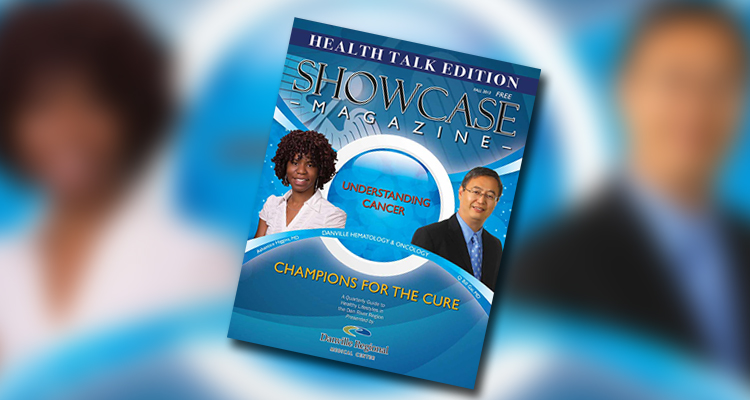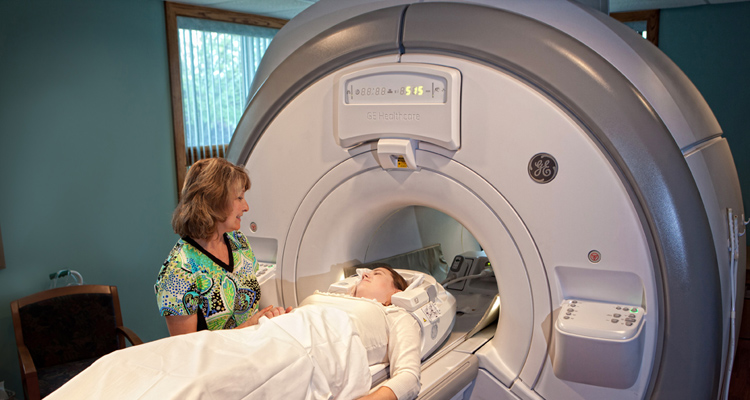Champions For the Cure
When asked to name a villain, most people will respond with infamous characters such as those associated with comics, movies, and television. Our minds are tied up all day with work, family, and daily chores, so it’s natural to divert to a fantasy world every now and then. But if you ask a cancer patient or survivor the same question, the answer will most certainly be cancer — the ultimate villain.
Fortunately, for every villain, there is a hero who dedicates his or her life to protecting the world from danger. Cancer’s nemesis is medicine and science and those who work valiantly every day to find a cure and to help those fighting the disease.
Dr. Q. Bill Gai at Danville Hematology and Oncology is one of these heroes. Dr. Gai came to the United States from China 22 years ago to pursue a molecular biology study in genetic regulation on an intermolecular level. It was during his work with gene regulation that Dr. Gai started to form an interest in cancer treatment. “A major aspect of tumor formation is the deregulation or weakened state of a normal gene in the body,” Dr. Gai says. While researching journals, Dr. Gai started to question whether reverting this deregulation could treat cancer since cancer comes from this same deregulation. That very concept is being used today. It’s called Molecular Target of Therapy, where disrupting the deregulation inhibits or reverses the growth of cancer. “Many drugs, especially the oral drugs, developed in the last ten years are based on this concept.” Along with his desire to understand the scientific side of cancer, Dr. Gai’s spirit for helping people from the heart led him to become an oncologist.
It’s this familiar spirit that steered him to Danville Hematology and Oncology. “Danville Regional Medical Center’s enthusiasm to provide a top-notch cancer program encouraged me to join the team,” Dr. Gai says. Helping people deal with a frightening subject that makes headline news daily goes a long way in strengthening a community. Dr. Gai says, “Our staff is dedicated to making our patients’ and their families’ quality of life better during these tough times. We are a strong chain with no weak links.”
Helping Your Doctor Make the Right Diagnosis
Our bodies tell us when something just isn’t right. Feelings of sickness, nagging aches, and fatigue are common symptoms that could include a wide range of ailments. For Dr. Gai there are several questions he asks when he meets with a patient for the first time. He says, “I ask them how they feel today, how they’ve felt over the last few weeks, and about general health issues.” These are questions that you should be prepared to answer. Breast, lung, and colon cancers are among the five most misdiagnosed diseases today. Having a detailed account of what’s going on with your body puts your physician on the right path of treatment.
Document your symptoms. Writing down everything that you want to talk to your doctor about works to ensure that you do not forget key details. Do this two or three times before your appointment, making sure you cover everything you want to address. “For a correct assessment, there is never too much information from the patient. A lot of times that one thing you forget to tell your physician is really important in coming to a proper diagnosis,” Dr. Gai says.
Take a pen and paper with you to your appointment as well. It’s impossible for the mind to absorb everything said. Let the pen and paper do the work for you. Before your visit, take a crash course in your family tree. Look at medical records, know if certain diseases such as cancer are prevalent in your family. Dr. Gai says, “Cancer has a genetic component. It’s imperative to have knowledge of the family’s medical lineage.”
If you are taking any medications, bring them with you to your appointment. Sometimes medication can affect people adversely.
When meeting with your physician, be specific with symptoms, but do not self-diagnose. For example if you tell the doctor you have a sinus infection, you’re excluding other causes for the pain such as an infected tooth. Let the doctor diagnose you based on your symptoms. Don’t be afraid – or shy – about describing your symptoms. Is it a dull ache or a sharp, stabbing pain? How long does it last? How long have you been having the pain? Is it more severe at night or when you’re active? These specifics can point to ailments while omitting others.
Once your doctor makes a diagnosis, ask questions and remain positive. Dr. Gai says, “Patients that keep a positive attitude along with good family support generally have a better prognosis and a better quality of life.”









